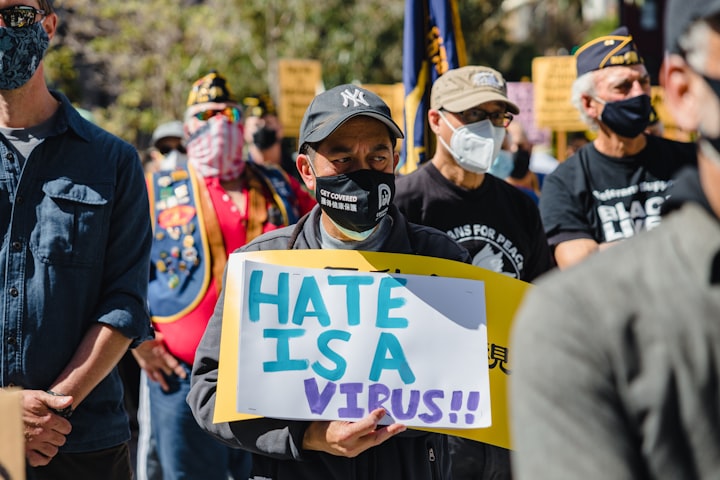Are Our Leaders Making People Vaccine-Hesitant?
The 5 Cs and how governmental distrust could be damaging the vaccine rollout.

Vaccine hesitation has always been a divisive topic. In the midst of COVID-19, it’s more divisive than ever.
As staunch anti-vaxxers proliferate misinformation across social media, pro-vaxxers poke fun at them.
I know people who believe that if an unvaccinated person is hospitalised due to COVID-19 they should be refused treatment.
The fact is, people are afraid.
Some of us are afraid of contracting COVID-19 and some of us are afraid of being jabbed and sprouting extra limbs. Whatever it is that you’re personally afraid of, know that you’re probably not alone. Fear and distrust are rife right now.
I’m double-jabbed, but I’m beginning to understand those who are not.
The 5 Cs.
Research suggests that there are five main reasons for people being vaccine-hesitant.
Note that the research does distinguish the difference between the vaccine-hesitant — those who are unsure about vaccinations, and those who are anti-vaxxers — those who believe vaccination programs are conspiracies to control the population etc.
The 5 main reasons, or the 5 Cs, fall under these categories.
Complacency — Belief that the virus isn’t dangerous or a personal threat.
Context— Socioeconomic factors.
Communication — Misinformation and rapid changes in guidance, resulting in mistrust.
Convenience — Access to the vaccine.
Confidence — Lack of confidence in the efficacy and safety of the vaccine or those in charge of the rollout.
It’s the last one I’m beginning to understand. Confidence, or lack thereof.
When the rule-makers are the rule-breakers.
Headlines in the U.K. this weekend have reflected the public outrage over Downing Street’s alleged wintertime parties of 2020, all held whilst the rest of the U.K. was in lockdown, pubs and restaurants were closed, and socialising indoors was strictly forbidden.
Stories have poured in from those who adhered to strict lockdown rules as their loved ones lay ill, some terminally so, in care homes and hospitals which they were not allowed to enter.
All while Boris and co were having a good old knees-up.
There’s been outrage, yes. But surprise? Not really.
After all, this is the behaviour we have now come to expect from our governmental officials.
Earlier in 2021, Matt Hancock, the former Health Secretary, was caught having an affair with a colleague. Whilst the rest of us were adhering to strict social distancing rules, he couldn’t have been closer to his mistress.
And who can forget Dominic Cumming’s now-infamous trip to Barnard Castle to allegedly ‘test his eyesight’ before driving the 300-mile trip home to London — whilst the rest of the country were forbidden from travelling further than a 5-mile radius from their home. And while Cummings was positive for coronavirus.
When the people who are making the rules are breaking the rules it doesn’t inspire much confidence from the rest of us. After all, if our public officials really believed COVID-19 to be as dangerous as they say, why would they be taking these unnecessary risks?
Perhaps it’s not so difficult to see why some would be vaccine-hesitant when these are the people that are pushing us to get jabbed.
Their careless actions make a mockery of the general public’s concerted effort to contain the virus. Is it really so implausible that they’re making a mockery of us in other ways too?
Where we go from here.
I’m double jabbed because I believe in science.
However, I don’t believe in the integrity or competence of our governmental officials.
When we don’t trust our leaders, how can we trust them to lead us out of the pandemic? How can we trust their rollout?
Lockdowns are being reinstated all over Europe with some countries now making vaccination mandatory. As trust in our governments lessens, the vaccine-hesitant and anti-vaxxers among us will likely only strengthen in their resistance.
Experts have suggested that the way to encourage vaccine uptake is by listening to the concerns of the hesitant and responding appropriately rather than simply besmirching their opinions and attacking their choices.
Providing clear information on the efficacy and history of mRNA vaccines, for example, might help some people make an informed decision on whether or not to get vaccinated.
The takeaway.
I think that everyone should get jabbed. We need population level immunity to get this virus under control.
But the more I look around at the world, the more I understand people who are hesitant, and hell, even people who are anti-vax. I don’t agree with them, but I understand.
We don’t know who we can put our faith in anymore.
We don’t know who to trust.
We’re all so lost that we’ll cling onto anything that makes us feel better, whether that’s believing your immune system is superior to that of others or believing that you’re ‘awake’ to the corruption of the elite.
Me, I’m clinging to the power of science. How about you?






Comments
There are no comments for this story
Be the first to respond and start the conversation.